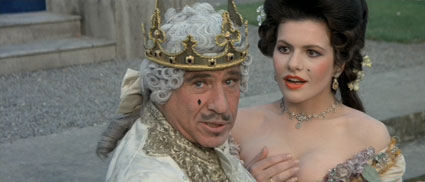Open source is bad for vendors


He's right. Vendors have trod the computing world like Kings for decades. Open source changes the market's dynamics. (Photo from Mel Brooks' History of the World Part I.)
Open source reduces a vendor's power in customer relationships. Open source also reduces a vendor's hold on key employees, who can now walk out the door and continue working on what the vendor was selling.
That's the idea of open source.
There are two sides in every market relationship, and the boss's side is just one of them. Customers want to reduce the control vendors have over them, which in the computer business is enormous. Employees want to enhance their bargaining power, not just to make more money but to do work they like.
Many of these vendor fears are wrapped up in the phrase "intellectual property." What you do for me becomes my property.
 But why should it? Why should you, as an employer, continue to profit from the work I perform as your employee? Why should you, as a vendor, continue to control the machine I bought from you?
But why should it? Why should you, as an employer, continue to profit from the work I perform as your employee? Why should you, as a vendor, continue to control the machine I bought from you?
The attitude that economic relationships should be that way comes to us from the late 19th century, the mass production age which made it necessary to forge teams in order to build new things. The corporation stood in, as an individual, for the team and assumed rights to what the team had built.
But markets don't have to be that way. Patents and copyrights were conceived as individual rights, not corporate goods. And open source proves that inventions can be even grander than before if rights to the work are held in common.
To some people this still sounds like revolution, like a peasant's revolt. It's not. It's just a new market reality, one which has no use for Kings. Which is the way the commoner Adam Smith (above) intended it.